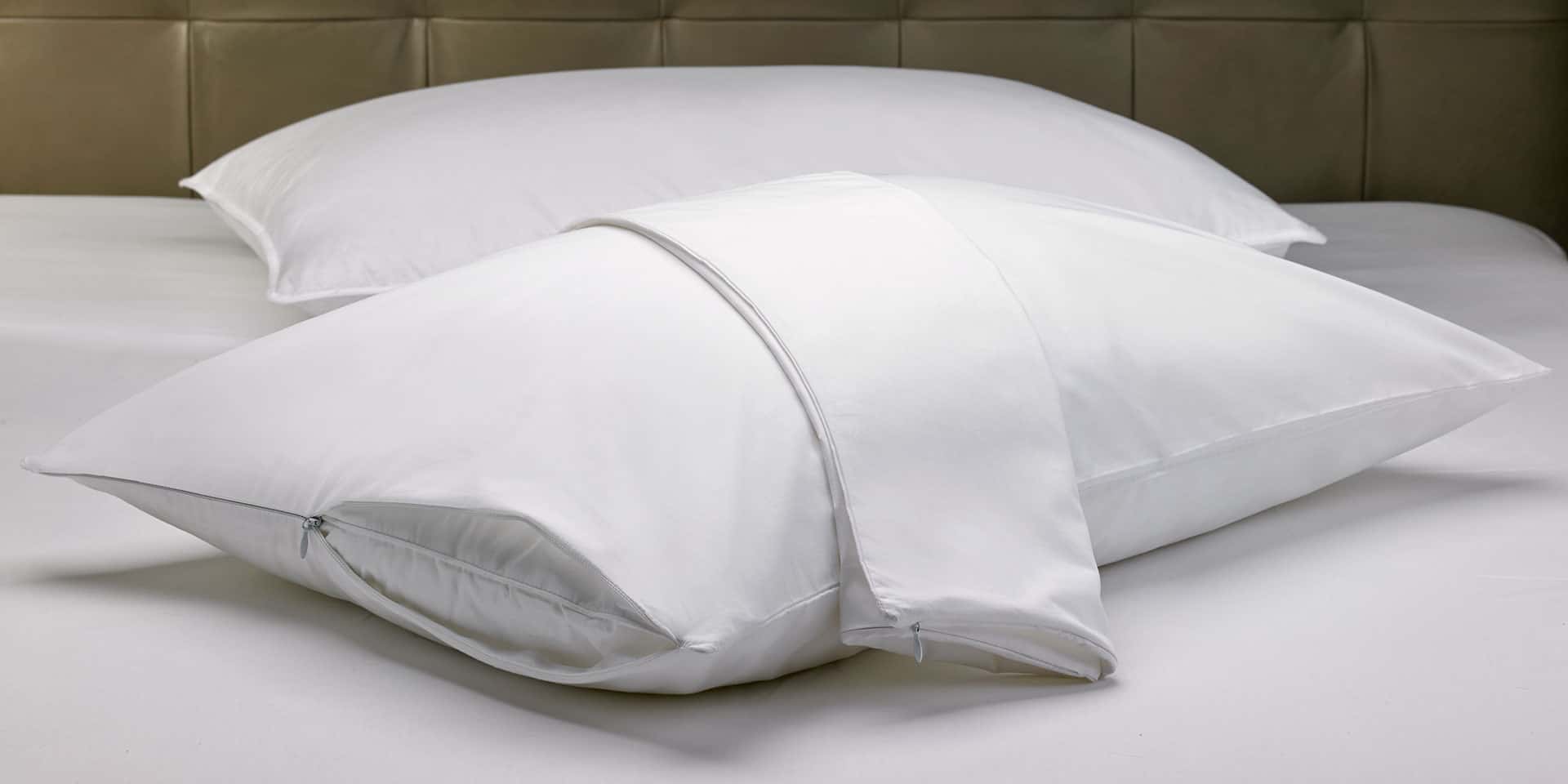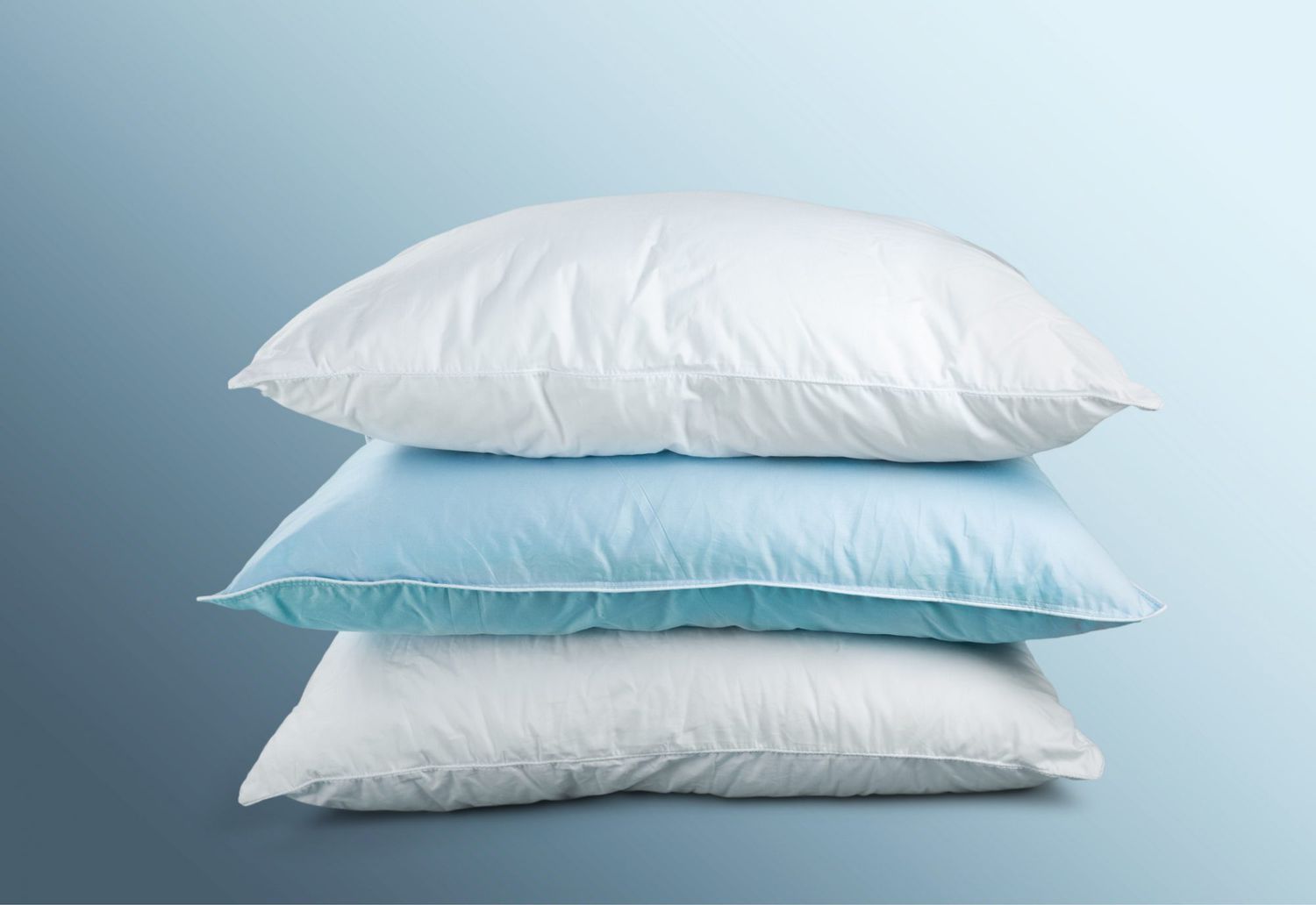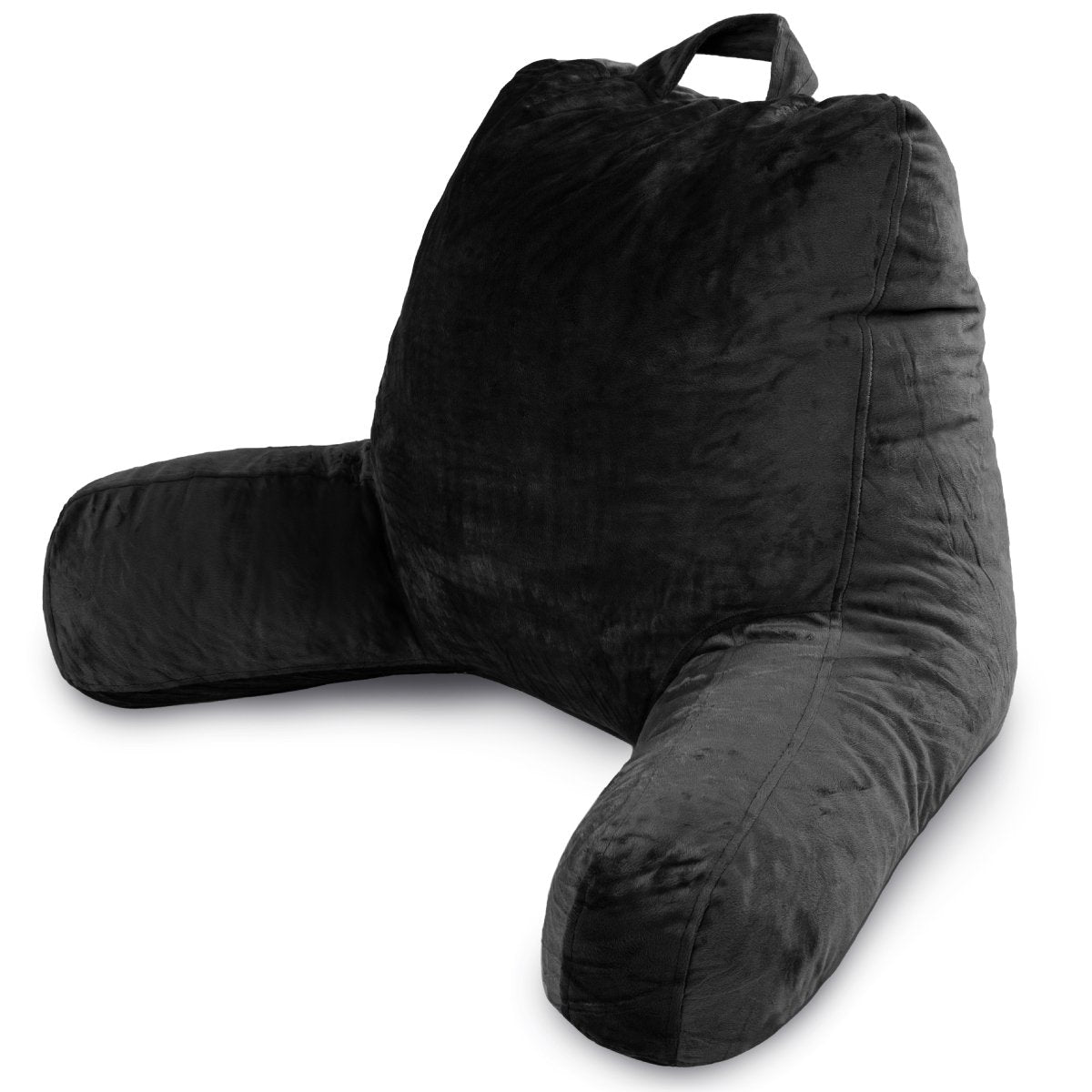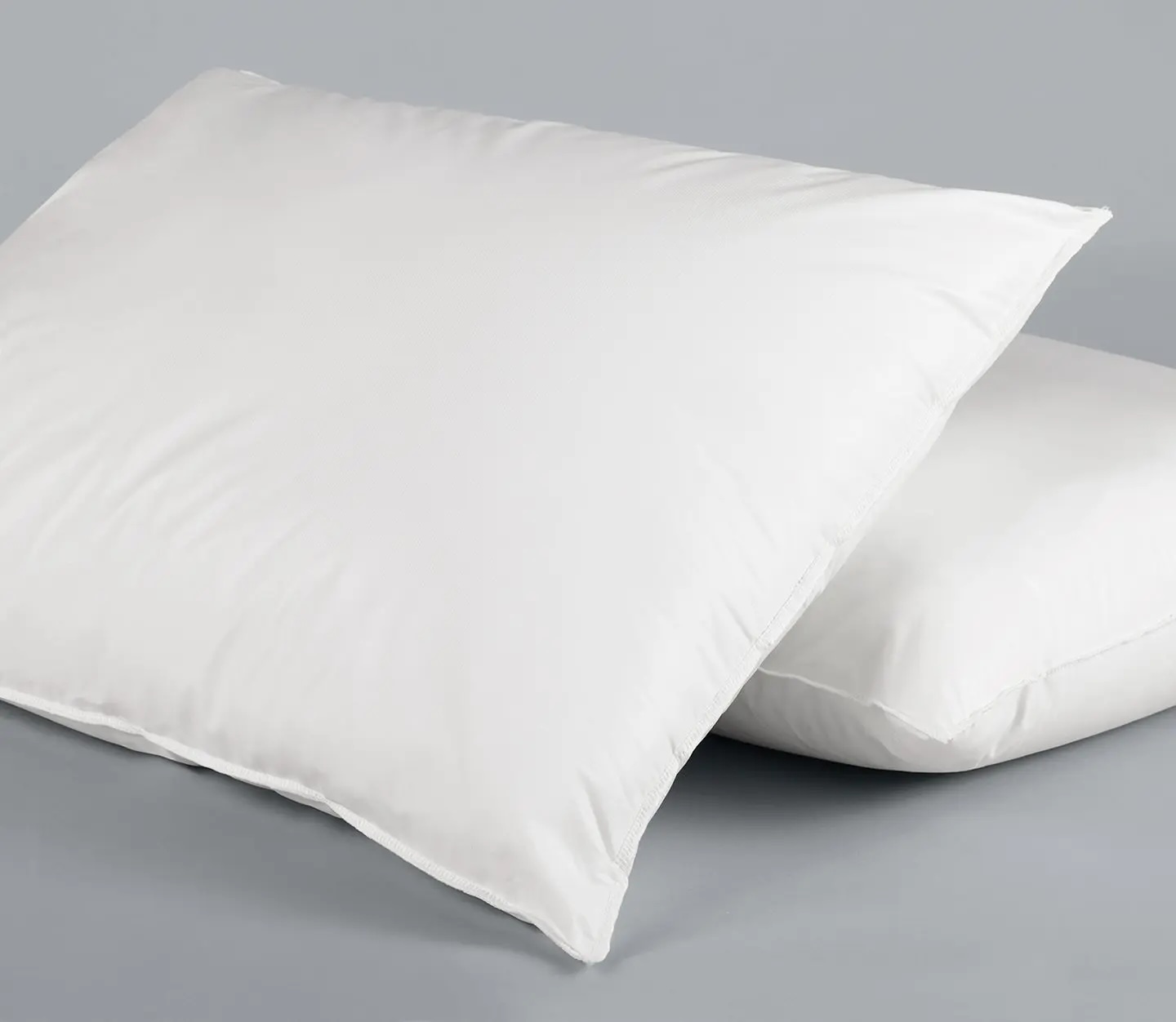

Articles
What Pillows Do Chiropractors Recommend
Modified: October 20, 2024
Discover the articles on which pillows chiropractors recommend for optimal neck and back support. Find the best pillows to improve your sleep and spinal alignment.
(Many of the links in this article redirect to a specific reviewed product. Your purchase of these products through affiliate links helps to generate commission for Storables.com, at no extra cost. Learn more)
Introduction
Choosing the right pillow is crucial for maintaining proper spinal alignment and promoting quality sleep. As experts in spinal health, chiropractors understand the importance of a good night’s rest and its impact on overall well-being. That’s why they often recommend specific types of pillows to their patients.
In this article, we’ll explore the pillows that chiropractors commonly recommend and why they believe these choices are beneficial. Whether you suffer from neck pain, back pain, or simply want to improve your sleep quality, understanding the factors to consider when choosing a pillow and the different options available can help you make an informed decision.
Key Takeaways:
- Choosing the right pillow, such as cervical contour or memory foam pillows, can improve spinal alignment, reduce discomfort, and enhance sleep quality, as recommended by chiropractors.
- Factors like sleep position, support, and material are crucial when selecting a pillow. Consulting with a chiropractor and following usage tips can maximize the benefits of the recommended pillow for optimal sleep and well-being.
Read more: What Toothbrush Do Dentist Recommend
Importance of Choosing the Right Pillow
When it comes to sleep, the quality of your pillow can significantly impact your comfort and the health of your spine. Choosing the right pillow is essential for several reasons:
- Proper Spinal Alignment: A well-designed pillow supports the natural curve of your spine, maintaining proper alignment while you sleep. This helps prevent excessive pressure on your neck and back, reducing the risk of waking up with stiffness or pain.
- Reduced Neck and Back Pain: The right pillow can alleviate or even eliminate neck and back pain caused by poor support during sleep. By providing adequate cushioning and support, it helps relieve pressure on sensitive areas, allowing your muscles and ligaments to relax and recover.
- Improved Sleep Quality: A comfortable and supportive pillow promotes better sleep quality by reducing discomfort and promoting relaxation. When your body is properly supported, you can achieve deeper and more restful sleep, waking up feeling refreshed and energized.
- Prevention of Sleep-Related Conditions: Inadequate pillow support can contribute to or exacerbate sleep-related conditions such as insomnia, snoring, and sleep apnea. By choosing the right pillow, you can help alleviate these issues and improve your overall sleep health.
Given the importance of selecting the right pillow, it’s crucial to consider certain factors before making a purchase. Understanding these factors will help you identify the pillows recommended by chiropractors that are best suited to your individual needs.
Factors to Consider When Choosing a Pillow
When selecting a pillow, there are several key factors to consider. These factors will help guide you toward a pillow that provides the necessary support and comfort for your sleep needs:
- Sleeping Position: Your preferred sleeping position plays a significant role in determining the ideal pillow for you. Side sleepers generally benefit from a firmer pillow to support the head and neck alignment, while back sleepers typically need a medium-firm pillow to maintain proper spinal alignment. Stomach sleepers may require a softer, flatter pillow.
- Support: Look for a pillow that provides adequate support for your head, neck, and shoulders. The pillow should keep your spine aligned in a neutral position, without causing any strain or discomfort.
- Material: Consider the material composition of the pillow. Different materials, such as memory foam, latex, or down alternative, offer varying levels of support and comfort. Some materials may be more hypoallergenic or breathable than others.
- Quality and Durability: Invest in a high-quality pillow that will withstand regular use over time. A durable pillow will maintain its shape and support, offering long-lasting comfort.
- Allergies: If you suffer from allergies, it’s essential to choose a pillow that is hypoallergenic and resistant to dust mites and other allergens.
- Personal Preference: Ultimately, your personal preference plays a crucial role in determining the right pillow for you. Factors such as pillow height, firmness, and feel can vary from person to person, so it’s essential to choose a pillow that aligns with your comfort preferences.
By considering these factors, you can narrow down your options and choose a pillow that caters to your specific needs. However, it’s always recommended to seek advice from a chiropractor or medical professional who can provide personalized guidance based on your unique circumstances.
Types of Pillows Recommended by Chiropractors
Chiropractors often recommend specific types of pillows to help promote proper spinal alignment and alleviate discomfort. While individual preferences may vary, the following are some of the most commonly recommended pillow types:
- Cervical Contour Pillows: These pillows are specifically designed to support the natural curve of the spine, particularly the neck. They have a contoured shape, with a higher area in the middle to cradle the head and a lower area on the sides to support the neck. Cervical contour pillows help maintain proper alignment and relieve pressure on the neck and upper back.
- Memory Foam Pillows: Memory foam pillows respond to the body’s heat and pressure, contouring to the shape of the head and neck. They provide excellent support and can help alleviate pain and discomfort. Memory foam pillows are hypoallergenic and are suitable for various sleep positions.
- Water Pillows: Water pillows have a pouch inside that can be filled with water to adjust the pillow’s firmness and support level. They offer customizable support and can be beneficial for individuals with specific neck and back pain concerns.
- Buckwheat Pillows: Buckwheat pillows are filled with natural buckwheat hulls. They conform to the shape of the head, providing proper support, and allow for good airflow to keep you cool throughout the night. Buckwheat pillows can be adjusted by adding or removing hulls to achieve your desired comfort level.
- Feather Pillows: Feather pillows are soft and provide gentle support. They are moldable and can be easily adjusted to your preferred loft. Feather pillows are lightweight and suitable for those who prefer a softer pillow.
These pillows are recommended by chiropractors due to their ability to provide adequate support and promote proper spinal alignment. However, it’s important to note that individual preferences and specific health conditions may require variations in pillow selection. It is always best to consult with a chiropractor or healthcare professional for personalized advice.
Cervical Contour Pillows
Cervical contour pillows are specifically designed to support the natural curvature of the spine, particularly the neck. These pillows have a unique shape that helps maintain proper alignment and relieve pressure on the neck and upper back.
The contour design of these pillows features a higher area in the middle, which cradles the head, and a lower area on the sides, which supports the neck. This design allows for proper spinal alignment, helping to alleviate discomfort and promote a healthier sleep posture.
One of the key benefits of cervical contour pillows is their ability to provide targeted support. By aligning the head and neck with the rest of the spine, these pillows can help reduce strain on the muscles, ligaments, and nerves in the neck area. This can be particularly beneficial for individuals who suffer from neck pain, stiffness, or headaches.
Cervical contour pillows are often recommended for both back and side sleepers. For back sleepers, the contour shape helps to maintain the natural curve of the neck and prevent it from flexing too far forward or backward. For side sleepers, the higher area of the pillow supports the head and neck, keeping them aligned with the rest of the spine.
When choosing a cervical contour pillow, it’s important to consider the firmness and height. The firmness should provide adequate support without feeling too rigid or soft. The height of the pillow should be proportionate to the individual’s body size and preferred sleep position.
It’s worth noting that it may take some time to adjust to a cervical contour pillow, especially if you have been using a different type of pillow. However, with patience and proper adjustment, these pillows can make a significant difference in promoting spinal alignment and relieving neck and upper back discomfort.
Overall, cervical contour pillows are highly recommended by chiropractors due to their ability to provide targeted support and promote proper spinal alignment. However, it’s important to choose a pillow that suits your individual needs and preferences, and consulting with a chiropractor or healthcare professional can help guide you in making the right choice.
Read more: What Do Copper Pillows Do
Memory Foam Pillows
Memory foam pillows have gained popularity in recent years due to their ability to contour to the shape of the head and neck, providing customized support and comfort. These pillows are made from a special type of foam that reacts to body heat and pressure, allowing it to mold to the unique contours of the individual.
One of the key benefits of memory foam pillows is their ability to provide excellent support and alignment. As the foam conforms to the shape of your head and neck, it helps maintain a neutral spinal position, reducing strain on the muscles and promoting proper alignment. This can be particularly beneficial for individuals with neck pain, shoulder pain, or other conditions that require extra support.
Memory foam pillows offer a good balance of softness and firmness, providing a comfortable and supportive sleep surface. They distribute pressure evenly, relieving pressure points and reducing the likelihood of waking up with aches and pains.
Another advantage of memory foam pillows is their hypoallergenic nature. The dense structure of memory foam inhibits the growth of allergens such as dust mites, mold, and bacteria. This makes them an excellent choice for individuals with allergies or asthma.
Memory foam pillows also excel in motion isolation. If you sleep with a partner who tends to toss and turn throughout the night, a memory foam pillow can help minimize disturbances. The foam absorbs movement, ensuring you can sleep undisturbed.
When choosing a memory foam pillow, consider factors such as the density and thickness of the foam. Higher density foam tends to provide more support, while lower density foam offers a softer feel. Additionally, the thickness should be suitable for your preferred sleeping position and body size.
It’s important to note that memory foam pillows can retain heat, which may be a concern for individuals who tend to sleep hot. However, many manufacturers have introduced cooling technologies, such as ventilation channels or gel-infused foam, to address this issue.
Overall, memory foam pillows come highly recommended by chiropractors due to their ability to conform to the unique contours of the head and neck, providing personalized support and promoting proper spinal alignment. However, as with any pillow, it’s important to choose the right density and thickness to suit your specific needs, and consulting with a chiropractor or healthcare professional can help you make an informed decision.
When choosing a pillow, look for one that provides proper support for your neck and spine. Chiropractors often recommend pillows with memory foam or adjustable loft to maintain proper alignment while sleeping.
Water Pillows
Water pillows are an innovative type of pillow that offers customizable support by allowing you to adjust the water level inside the pillow. These pillows typically consist of a pouch that can be filled with water to achieve the desired level of firmness and support.
The unique feature of water pillows is their ability to adapt to the shape of your head and neck. As you lie down, the water inside the pillow redistributes itself to conform to your individual contours, providing personalized support and alignment.
One of the main advantages of water pillows is their adjustability. By adding or removing water, you can fine-tune the pillow’s firmness to suit your comfort preferences. This can be particularly beneficial for individuals with specific neck or back pain concerns, as the pillow can be customized to provide optimal support.
Water pillows are also known for their ability to maintain a consistent temperature throughout the night. The water inside the pillow acts as a heat conductor, helping to dissipate excess heat and keep you cool. This can be especially advantageous for individuals who tend to sleep hot.
In addition to providing support and temperature regulation, water pillows can help alleviate pressure points. By distributing your body weight evenly across the pillow’s surface, they can reduce the likelihood of developing uncomfortable pressure sores or stiffness.
It’s worth noting that water pillows may take some time to adjust to, particularly if you are not accustomed to this type of pillow. Finding the right water level and achieving your optimal comfort may require some experimentation.
When choosing a water pillow, look for a high-quality option with a durable water pouch and a secure sealing mechanism. It’s essential to ensure that the pillow is leak-proof and that the water pouch is easy to fill and adjust.
While water pillows are recommended by chiropractors for their adjustability and ability to conform to individual contours, they may not be suitable for everyone. If you have certain medical conditions, such as spinal injuries or mobility issues, it’s important to consult with a healthcare professional before using a water pillow.
Overall, water pillows offer a unique and customizable sleeping experience by allowing you to adjust the level of support and achieve proper spinal alignment. While they may require some initial adjustment, they can be a beneficial option for individuals seeking personalized support.
Buckwheat PillowsBuckwheat pillows are a natural and eco-friendly option that has gained popularity among those seeking firm, supportive pillows. These pillows are filled with the hulls or husks of buckwheat seeds, providing a unique sleep experience.
One of the main benefits of buckwheat pillows is their ability to conform to the shape of your head and neck, offering customized support. The hulls inside the pillow can shift and adjust as you move, allowing the pillow to contour to your individual contours. This promotes proper spinal alignment and reduces the risk of neck and back pain.
Buckwheat pillows are known for their outstanding breathability. The small gaps between the husks allow for excellent airflow, preventing heat buildup and keeping you cool throughout the night. This feature can be particularly beneficial for individuals who tend to sleep hot or those who live in warmer climates.
Another advantage of buckwheat pillows is their durability. The hulls are sturdy and long-lasting, meaning the pillow can maintain its shape and support for an extended period. Additionally, buckwheat pillows are hypoallergenic, resistant to dust mites, and mold, making them an excellent choice for individuals with allergies.
One of the unique aspects of using a buckwheat pillow is the ability to adjust the loft and firmness. By adding or removing hulls, you can customize the pillow’s thickness and support level to suit your personal preferences. This adjustability allows you to find the perfect balance between comfort and support.
It’s important to note that buckwheat pillows can have a firm feel compared to other pillow types. Some individuals may find that it takes a little time to get used to the texture and support of buckwheat hulls. However, many people find that the firmness of buckwheat pillows can alleviate neck and shoulder pain by providing optimal support.
When selecting a buckwheat pillow, it’s important to consider the quality of the hulls and the pillow’s construction. Look for pillows that use high-quality, organic buckwheat hulls and have a tightly woven cover to prevent hulls from escaping.
Overall, buckwheat pillows are recommended by chiropractors for their customizable support, breathability, and durability. While they may have a different feel compared to traditional pillows, they can provide excellent comfort and promote proper spinal alignment. If you prefer a firm and supportive pillow, a buckwheat pillow may be an ideal choice for you.
Feather Pillows
Feather pillows have been a popular choice for centuries, known for their softness and plush comfort. These pillows are filled with the feathers of ducks or geese, providing a luxurious sleep experience.
One of the main advantages of feather pillows is their soft and cloud-like feel. The feathers create a fluffy and malleable pillow, offering gentle support to the head and neck. This can be particularly appealing for individuals who prefer a softer sleeping surface.
Feather pillows excel in their ability to conform to the shape of the head, providing a personalized fit. The feathers can be easily molded and adjusted to suit your preferred sleeping position, allowing for optimal comfort and support.
Another benefit of feather pillows is their ability to regulate temperature. The natural composition of feathers allows for excellent airflow, preventing heat buildup and keeping you cool throughout the night. This can be especially advantageous for individuals who tend to sleep hot.
Feather pillows are known for their lightweight nature, making them easy to fluff and adjust. They offer a cozy and snuggly feel, allowing you to sink into the pillow while still providing gentle support to the head and neck.
It’s important to note that feather pillows may require regular fluffing to maintain their shape and loft. Over time, the feathers may compress, and the pillow may need to be shaken or fluffed to restore its fullness.
When choosing a feather pillow, look for high-quality options with a high feather-to-down ratio. Feather pillows with a higher percentage of feathers tend to provide more support and maintain their shape better. Additionally, ensure that the pillow has a tightly woven cover to prevent feathers from poking through.
While feather pillows offer softness and comfort, they may not be suitable for everyone. Individuals with allergies or sensitivities to feathers may need to avoid these types of pillows. In such cases, hypoallergenic alternatives, such as down alternative pillows, may be a better choice.
Overall, feather pillows are recommended by chiropractors for their plush comfort and malleability. They provide a soft and gentle sleep surface, allowing for personalized support. If you enjoy a cozy and lightweight pillow, a feather pillow can provide a luxurious sleeping experience.
Read more: What To Do With New Pillows
Tips for Using the Recommended Pillows
Once you have chosen the recommended pillow that best suits your needs, it’s important to use it correctly to maximize its benefits. Here are some tips for using your new pillow:
- Give it time to adjust: If you’re switching to a new type of pillow, it may take a few nights for your body to adjust to the change. Give yourself time to get accustomed to the new pillow before deciding if it’s the right fit for you.
- Find the right loft and firmness: Experiment with the pillow to find the optimal loft (height) and firmness for your preferred sleep position. Adjust the pillow or add/remove filling if needed to achieve the perfect balance of comfort and support.
- Keep it clean: Regularly clean your pillow according to the manufacturer’s instructions. This helps to maintain its hygiene and extends its lifespan. Some pillows may have removable covers that can be washed separately, while others may require spot cleaning or professional cleaning.
- Position it correctly: Ensure that the pillow is positioned correctly to support your head, neck, and shoulders. Depending on your sleep position, you may need to adjust the pillow’s placement to maintain proper spinal alignment.
- Replace when necessary: Pillows have a lifespan and may lose their effectiveness over time. If you notice signs of wear and tear, such as flattened areas or lumps, it may be time to replace your pillow. As a general guideline, consider replacing your pillow every 1-2 years.
- Consider additional support: Depending on your individual needs, you may benefit from additional support while sleeping. For example, if you have lower back pain, placing a small pillow or rolled-up towel under your knees can help alleviate pressure on your spine.
- Consult with a chiropractor: If you have specific health concerns or ongoing pain, it’s recommended to consult with a chiropractor or healthcare professional. They can provide personalized guidance and adjustments to ensure that you are using the recommended pillow correctly and receiving the maximum benefits.
By following these tips, you can make the most out of your recommended pillow and improve your sleep quality and comfort. Remember that finding the right pillow is an individualized process, and it’s important to listen to your body and make adjustments as needed to achieve optimal support and alignment.
Conclusion
Choosing the right pillow is essential for maintaining proper spinal alignment, reducing discomfort, and promoting restful sleep. Chiropractors often recommend specific types of pillows based on their ability to support the head, neck, and shoulders while keeping the spine in a neutral position.
Throughout this article, we explored various pillows commonly recommended by chiropractors, including cervical contour pillows, memory foam pillows, water pillows, buckwheat pillows, and feather pillows. Each of these pillows offers unique benefits and is designed to address specific sleep needs and preferences.
It’s important to consider factors such as sleep position, support, material, quality, and personal preference when choosing a pillow. Everyone’s body is different, and what works for one person may not work for another. Consulting with a chiropractor or healthcare professional can provide valuable guidance based on your specific circumstances.
Remember to give yourself time to adjust to a new pillow, as it may take a few nights to adapt. Regularly clean and maintain your pillow to ensure its hygiene and longevity. And if you notice signs of wear and tear, don’t hesitate to replace your pillow to continue enjoying the benefits of proper support.
By selecting the right pillow and using it correctly, you can improve spinal alignment, alleviate discomfort, and enhance your sleep quality. The path to optimal sleep and well-being starts with choosing a pillow recommended by chiropractors and tailoring it to your individual needs.
Investing in a high-quality pillow that promotes proper spinal alignment is an investment in your health and well-being. So take the time to consider your options, consult with professionals, and find the pillow that will provide you with a restful and rejuvenating night’s sleep.
Frequently Asked Questions about What Pillows Do Chiropractors Recommend
Was this page helpful?
At Storables.com, we guarantee accurate and reliable information. Our content, validated by Expert Board Contributors, is crafted following stringent Editorial Policies. We're committed to providing you with well-researched, expert-backed insights for all your informational needs.














0 thoughts on “What Pillows Do Chiropractors Recommend”